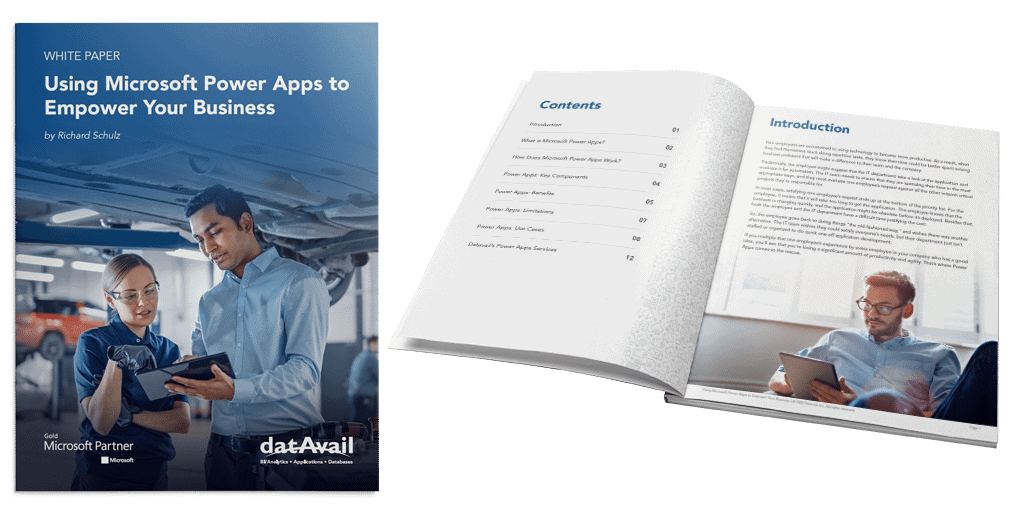Using Microsoft Power Apps to Empower Your Business

Your employees are accustomed to using technology to become more productive.
As a result, when they find themselves stuck doing repetitive tasks, they know their time could be better spent solving business problems that will make a difference to their team and the company.
Traditionally, the employee might suggest that the IT department take a look at the application and evaluate it for automation. The IT team needs to ensure that they are spending their time in the most appropriate ways, and they must evaluate one employee’s request against all the other mission critical projects they’re responsible for.
If you multiply that one employee’s experience by every employee in your company who has a good idea, you’ll see that you’re losing a significant amount of productivity and agility. That’s where Power Apps comes to the rescue.
In this white paper overview, we’ll address:
- What is Microsoft Power Apps? – Microsoft Power Apps allows non-technical users to create their own applications without relying on an IT team, and more.
- How Does Microsoft Power Apps Work? – Power Apps is a Low-Code Application Platform (LCAP). According to Gartner, Microsoft is a market leader in LCAP, which means that its capabilities are among the best you can find.
- What is a Low-Code Application? – When you use a low-code application, you can select a function using a drag-and-drop interface. The code for the function has already been written and tested, and it’s ready to deploy. Users can link different functions together to create their application.
- Power Apps: Key Components – Several components work together to help citizen developers create their own applications.
- Power Apps: Benefits – Forrester’s research report titled The Total Economic Impact™ of Power Apps shows how Power Apps is benefitting users in a variety of industries.
- Power Apps: Limitations
- Power Apps: Use Cases
- Datavail’s Power Apps Services – While Power Apps gives citizen developers freedom to create apps that will have a positive impact on your business, you still need to manage the overall process of running those apps, and you need to supply application development support where needed to extend the capability of an app. Datavail can help with:
- Power Apps as a Service (PAaaS) includes:
- Proactive 24×7 monitoring of your Azure and Power Apps environment. This includes investigating alarms and determining their severity and escalating alerts to your operations and support teams according to preset criteria.
- Ongoing Power Apps Development. This managed service provides rapid application development using a cohesive team of fractional or full-time resources. Our elastic consumption model offers predictable monthly pricing.
- Creating a Power Apps Center of Excellence (COE) in Your Company. Organizations using Power Apps need a way to encourage organic growth of applications while maintaining governance and control. That is the purpose of a Center of Excellence.
- Power Apps as a Service (PAaaS) includes:
Download the White Paper